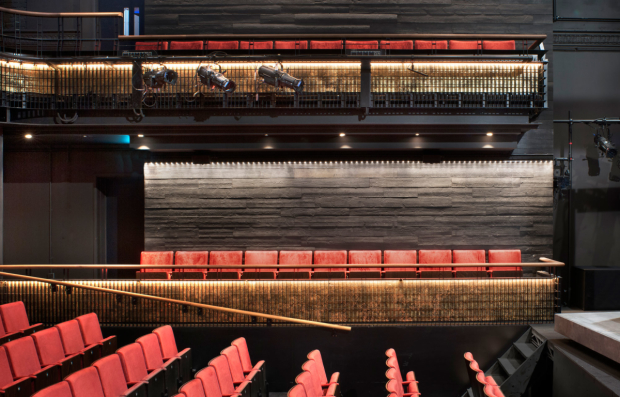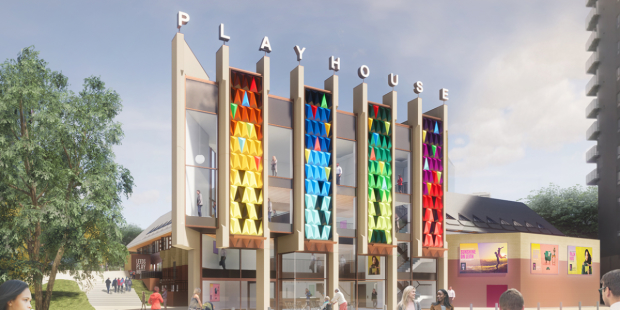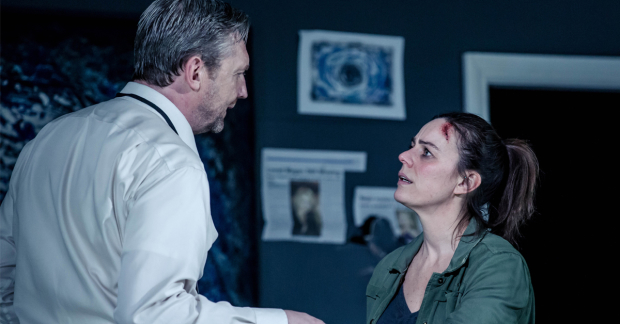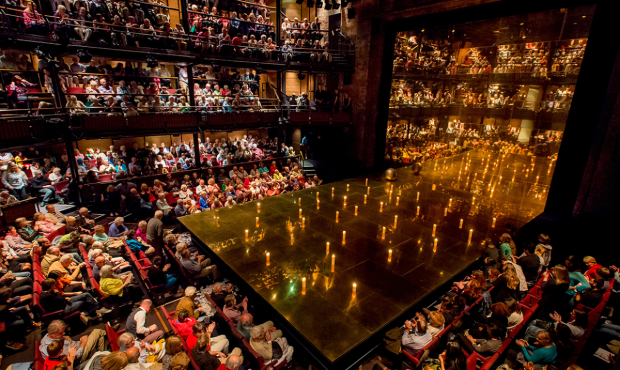Review: Road (Leeds Playhouse)
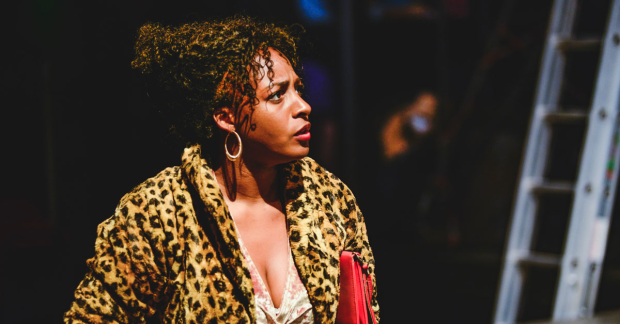
© Kirsten McTernan
For the West Yorkshire Playhouse this is a season of change. The name has reverted to the Leeds Playhouse, familiar to those with long memories as the name of the theatre's first incarnation when it was in borrowed university premises. At the same time the Playhouse is undergoing a major refurbishment and for the best part of a year plays will be staged in an on-site pop-up theatre, with the same configuration as the Playhouse's Quarry Theatre, but half the capacity.
The choice of Jim Cartwright's Road as the first play under the new/old name is inspired. For a start, the original Leeds Playhouse was famed for the brilliant agit-prop of Bill Hays who would have revelled in the energy and passionate political indignation of Cartwright's play, originally staged in the Thatcherite years, but sadly still appropriate today.
Equally the scenery store transformed into a theatre is perfectly suited to a play that was originally staged as a promenade production and needs some equivalent to that. The stage area is a long thin strip, with Hayley Grindle's design representing a row of terraced houses on two levels, joined by ladders and open staircases. In Amy Leach's vital production the narrator Scullery (Joe Alessi) takes us on a tour of the street, actors spring into action around and among the audience, and the effect is of a play that promenades the audience, not vice versa.
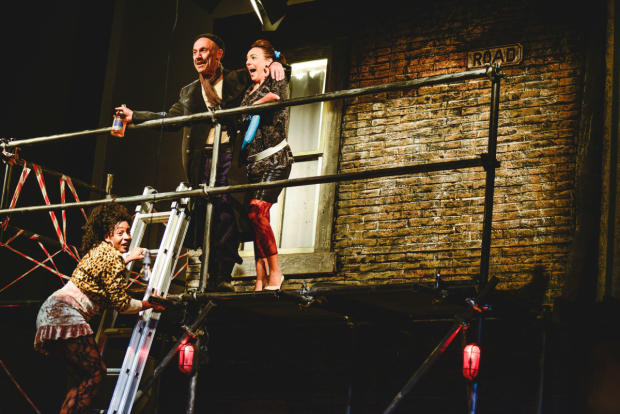
© Kirsten McTernan
Leach draws splendidly raucous, expletive-spitting, often broadly comic performances when required from her excellent cast of nine. But above all this is a play about the effect of poverty and unemployment. So sex and booze provide a way of forgetting; other scenes show different responses, nostalgia for more comfortable days or an existential despair.
Cartwright shows great skill in juxtaposing, and even overlapping, contrasting scenes. A brief comedy sketch of a couple of drunks conning a bottle opener out of the neighbour they have just woken up is followed immediately by an intensely moving monologue from a wife with children, no money and a husband who is perpetually in the pub. The first half ends with an extended scene between two young people who cannot face continuing this life: the boy's despair at the futility of it all drawing in the bright sensible girl mourning the loss of the office job which she did well and which gave her a sense of identity. Typically, immediately after that, the interval is given over to DJ Bisto's set in the local pub and the second half begins in a riot of dancing and staggering drunkenly home or to the chippy.
Amy Leach brings out all the contrasts in a hugely energetic production that gives full value to the introspective monologues which break up the noisy scenes of dysfunctional families, in-the-street rows and having fun. Apart from Alessi, the cast members are listed for two parts each (in reality somewhat more), all sharply differentiated in an outstanding ensemble performance.



